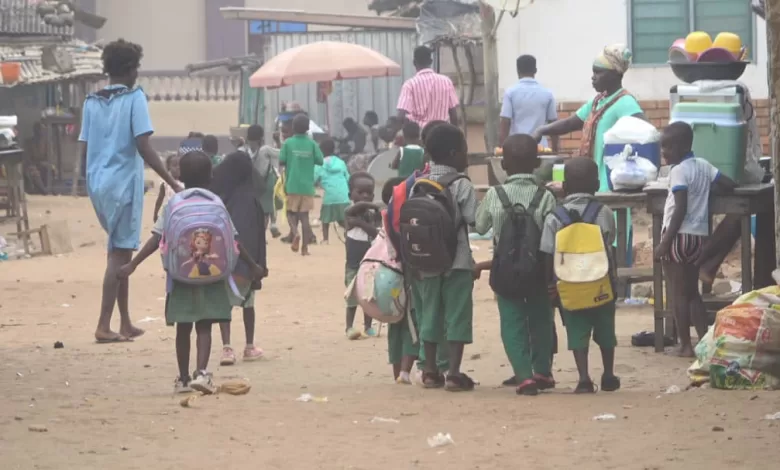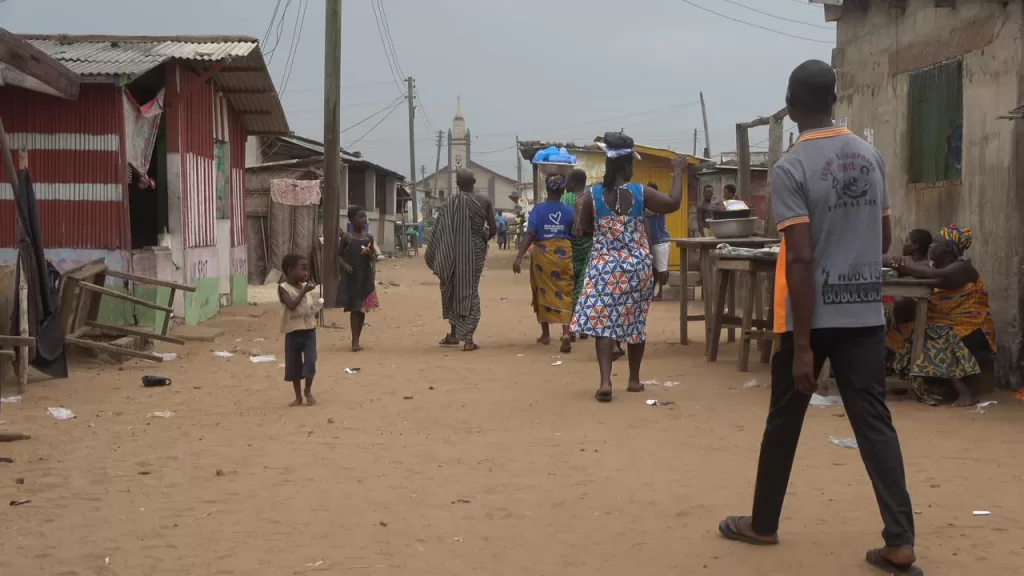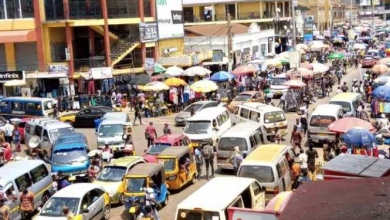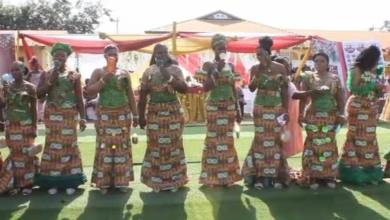From Chains to Courage: A Child’s Journey to Freedom

- Ghana faces a severe child slavery problem.
- Young victims endure horrific conditions and exploitation.
- Combating child slavery requires a united effort
- Support and rehabilitation are crucial for survivors.
A 13-year-old girl, Emelia Abeka, has recounted her ordeal as a victim of child slavery in the Ekumfi District of the Central Region. She was one of many children sold into bondage by their parents, a practice prevalent in the coastal areas.
Despite global efforts to eradicate forced labor and child slavery, as outlined in the UN’s Sustainable Development Goals, the issue persists in the Central Region. Poverty is a primary driver pushing parents to make this heart-wrenching decision.
Emelia described her life as a slave in Half Assini, where she endured long hours of labor in appalling conditions. She emphasized the loss of her childhood and freedom.
Ghana’s poverty rate, as indicated by the Multidimensional Poverty Index, stands at a staggering 31.5%, underscoring the socioeconomic challenges contributing to this crisis.
The story of Emelia highlights the urgent need for interventions to address child slavery and its root causes in the region.
The Ekumfi District, ranked 173rd out of 226 districts in Ghana’s Multidimensional Poverty Index, is grappling with a severe child slavery crisis. The district’s high deprivation rates in health, education, and living standards are driving parents to desperate measures, including selling their children into bondage.
Thirteen-year-old Emelia Abeka’s harrowing experience is emblematic of the plight of countless children in the region. Forced into labor as a child servant in a Half Assini chop bar, her story underscores the brutal reality of child slavery.
The district’s socioeconomic conditions provide fertile ground for traffickers, making it a hotspot for this heinous crime. Urgent interventions are needed to break the cycle of poverty and exploitation that fuels child slavery in the Ekumfi District.

Emelia Abeka’s ordeal is further compounded by the deceitful promises made by her slave master. Despite assurances of education and care, the young girl was subjected to grueling work hours at a local restaurant, with her earnings funneled into her captor’s finances.
The slave master’s manipulation extended to deceiving Emelia’s mother, falsely claiming that the child was attending school. This web of lies allowed the exploitation to continue unabated. Emelia’s heartbreaking account highlights the psychological and emotional trauma endured by victims of child slavery.
Determined to break free from her enslavement, Emelia Abeka devised a plan to escape. Despite the meager wages, she managed to save a small amount of money by working extra hours without her madam’s knowledge.
When her resistance to her captor’s demands led to her dismissal from the chop bar, Emelia saw an opportunity. She convinced the restaurant owner to rehire her, allowing her to earn money and plan her escape.
This young girl’s courage and resilience in the face of adversity are inspiring. Her story is a testament to the human spirit’s ability to overcome unimaginable challenges.
“The chopbar owner had to keep the little money I worked for for some weeks, so I was able to save enough to bring me back to Ekumpoanu. My quest for freedom pushed me to take this risk,” Emelia Said
Back in Ekumpoanu in the Ekumfi District of the Central Region, Emelia is struggling to settle in Ekumpoanu as her mother is also working at Yeji to make ends meet.
She lives on the benevolence of residents to survive and wants to go back to school.
Emelia’s return home has been met with mixed emotions. While relieved to be free from her ordeal, she faces the daunting task of rebuilding her life. With no formal education and limited support, her future remains uncertain.
The community is growing increasingly concerned about Emelia’s well-being, fearing she might fall victim to exploitation once again. There is an urgent need for support to help her reintegrate into society and pursue her education.
Emelia’s story serves as a stark reminder of the devastating consequences of child slavery and the importance of comprehensive support for survivors.
Challenging Heights, a non-governmental organization based in Winneba, has pledged its support for Emelia Abeka, a victim of child slavery. The organization, dedicated to combating this modern-day scourge, is aware of Emelia’s plight and is committed to assisting her.
Enock Derry Puffer, the organization’s Programs Director, highlighted the challenges posed by child traffickers, who employ indoctrination tactics to control their victims. He emphasized the devastating impact of these practices on children’s development and well-being.
Puffer underscored Challenging Heights’ determination to rescue children from the clutches of slavery and provide them with the necessary support to rebuild their lives.
The Director of the Anti-Human Trafficking Unit of the Ghana Police Service, William Ayariga, has emphasized the need for concerted efforts to tackle the issue of child slavery. He stressed the importance of collaboration among stakeholders to effectively address this crime and bring perpetrators to justice.






